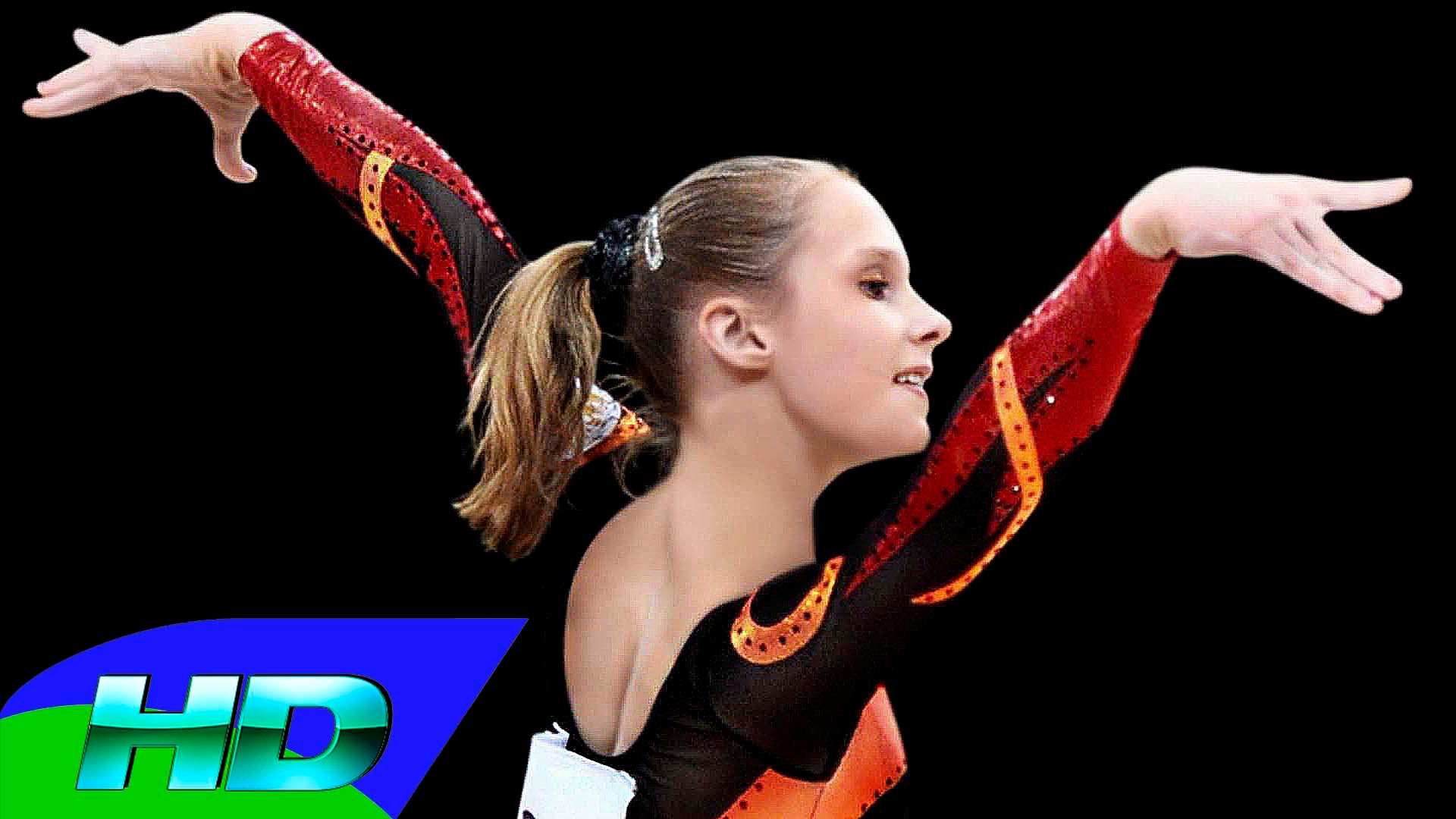A local TV channel in Samara filmed an interview with Anna Dementyeva and her coaches talking about her gymnastics career and the reasons for retirement.
Dementyeva was one of the stars of the Russian team leading up to 2012 and won the all-around at 2011 European Championships. Alexander Alexandrov even said that Dementyeva was working harder than everyone else on the team and he thought of her as a strong candidate for the London Olympics. However, in 2012, the gymnast suffered from injuries and even though she recovered by summer and had a great showing at the verification competition, she was sent home after the first day of the verification and was not invited to the Olympic selection camp. According to Elena Vaytsekhovskaya, Alexandrov was against this decision but despite being the women’s national team head coach, his opinion was ignored by Rodionenkos who made the ultimate selection decisions.
After the Olympics, Dementyeva kept training until the Universiade in Kazan, however, during the competition her back started hurting and she ended up retiring shortly after.
Currently, Dementyeva (who actually took her husband’s name Krestyanskova but is still known by her maiden name in the gymnastics world) is working as a gymnastics coach and a nail artist in her home city of Samara. She gave birth to a baby daughter in December of 2017. This year Samara also hosted the first Anna Dementyeva Cup.
However, the interview clearly shows that Dementyeva hasn’t completely moved on yet and she’s still very much upset about how things went down in 2012-2013.
She said that living at Round Lake was extremely hard for her emotionally as she’s a very shy person. Since she came from a different background than most of the girls on the team, she had trouble connecting with them:
“I grew up in a very poor family and was such a scared kid that I didn’t have any acquaintances or friends, I didn’t have anyone close to me there and no one to look for support from. When I just came to the national team, of course, for the first few months, or even more, a year or two, I couldn’t go up to the girls, couldn’t talk to them, I was always sitting alone, I was always the odd one out. That is, I had a very hard time to find something in common with my teammates – with Vika Komova, Aliya Mustafina, Tanya Nabieva, I had a very hard time connecting with all these girls because I didn’t know what to talk to them about, didn’t know how to approach them”.
When talking about not making the Olympic team, Dementyeva was on the verge of crying:
“I would’ve loved to make it to the Olympics, I was already hoping for it, I thought it was my time in 2012, but then the injuries started and I was starting to be pushed out because of the illnesses and I already realized that there was no hope for the Olympics for me”.
Her coaches Mikhail Savushkin and Elena Zhiganova say that not making the Olympics affected Dementyeva very strongly and she was mentally done already in 2012 but they had an agreement that she would keep training until the Universiade. Perhaps she would keep going even further but during the competition, her back started hurting very much. Turned out she had a spine issue from birth that was never diagnosed with one vertebrae being unstable and moving. She decided to retire after the Universiade and then, when the local doctors said they couldn’t help her, the federation didn’t agree to pay for her surgery abroad as she was already retired. The issue was progressing fast and she was in constant pain and had trouble walking. She ended up asking Alexei Nemov for help and Nemov was able to arrange the funding for her surgery abroad through the Ministry of Sport and the gymnastics federation:
“I’m very grateful to him for this because when I retired I had no hope, everyone forgot about me, they let me go and they already had new stars shining on the team. I was suffering for a year, I thought that perhaps the local doctors could help me. I had trouble coming to the gym to coach. In 2014, I gave up and I didn’t know what to do because not one doctor here agreed to take my case. Then my mom advised me and I remembered that Nemov had a similar problem with his spine”.
Nevertheless, Dementyeva stays very optimistic (her coaches remarked how she’s an incredibly positive person) and plans to sign her daughter up for gymnastics as well:
“I think she was born with it already. I’m an athlete, my husband is an athlete. I would like for her to also conquer the highest peaks, to achieve what I have achieved and I’d like for her to be much better than me”.
Support Gymnovosti on Patreon from only $1 a month and help us bring to you even more awesome gymnastics coverage!




Thanks for your hard work, Liubov! I’m happy to support you on Patreon.
One small translation issue: “Turned out she had a spine issue from birth that was never diagnosed with one spine being unstable and moving.” The second “spine” in that sentence should probably be “vertebra” or “disc” (I don’t know the original text or her exact medical issue, so it would depend) as “spine” refers to the whole column in English, not the individual pieces .
Thanks for pointing it out. It’s not a translation issue, more like me being distracted. I tried to reformulate this sentence several times and I guess ‘spine’ was left off from earlier versions.